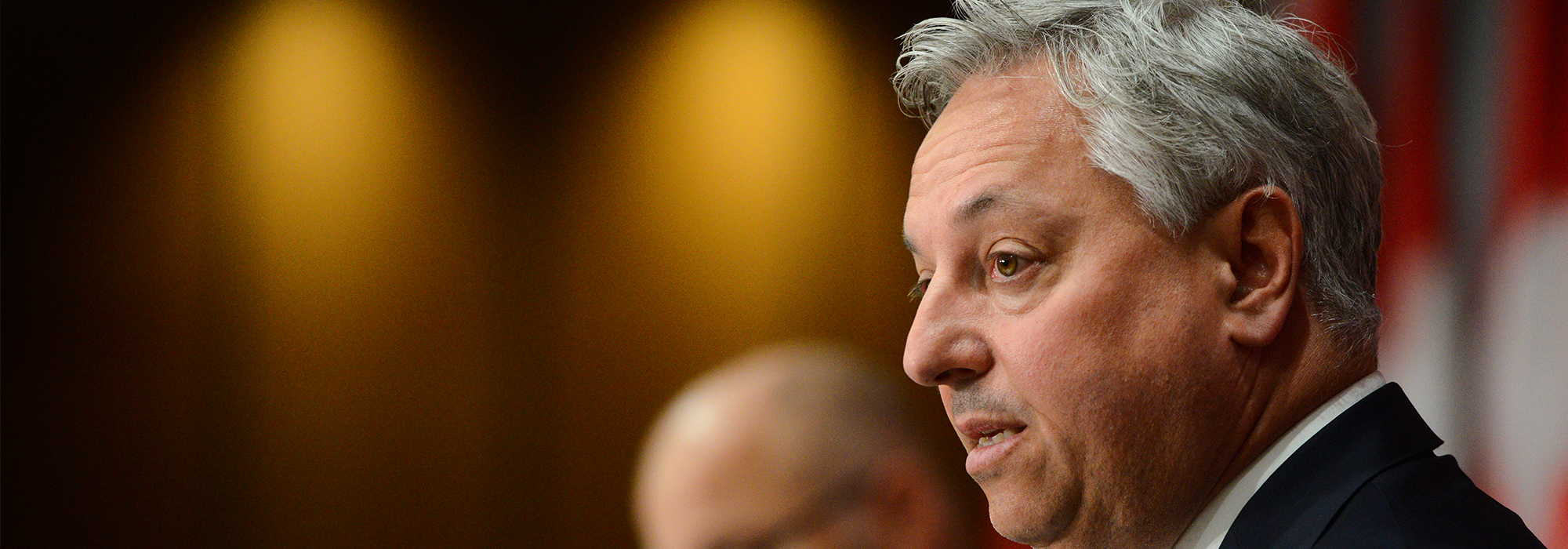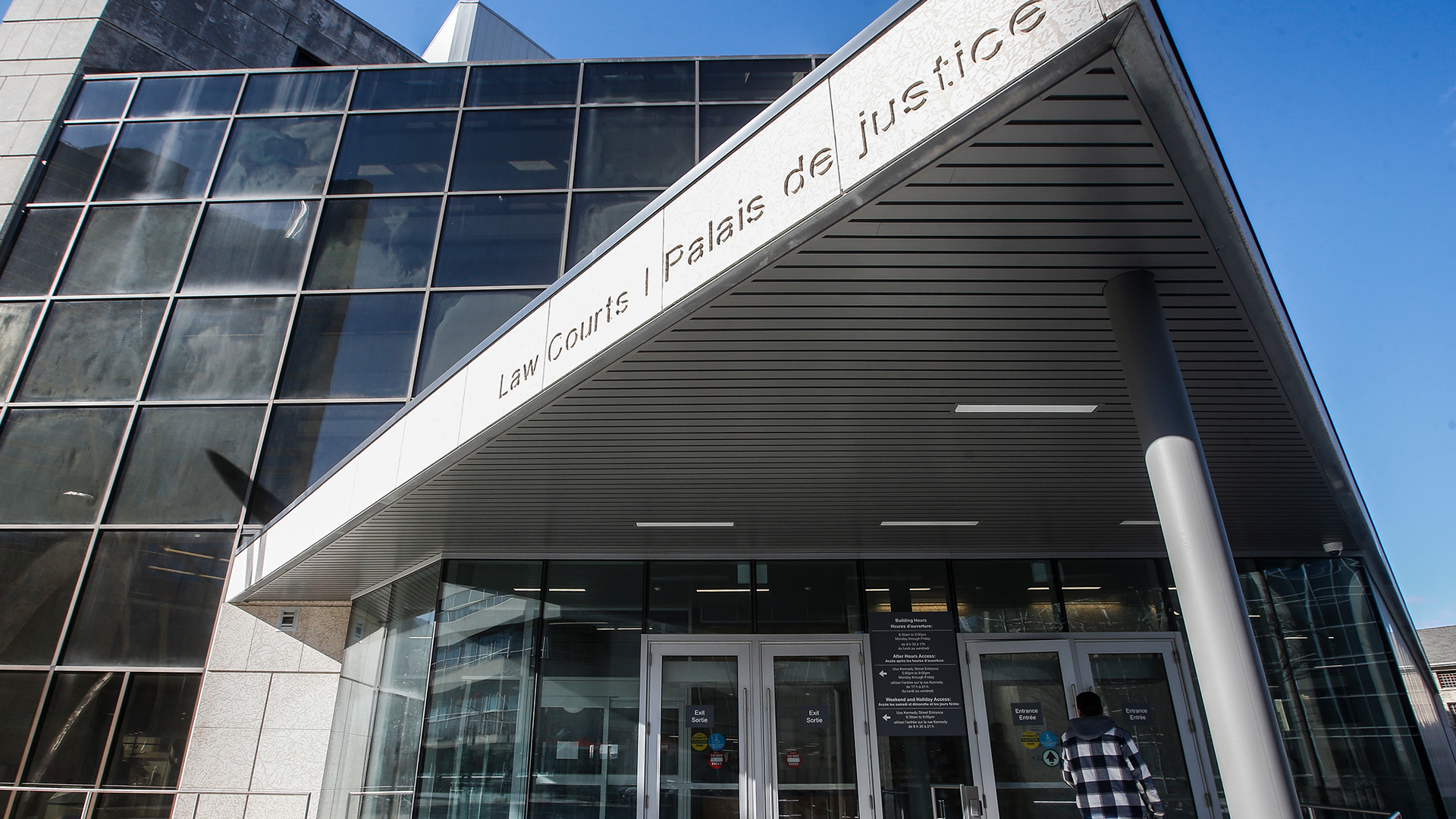
This month the Federal Court released a scathing judgment calling for a comprehensive review of the “systemic, governance and cultural shortcomings and failures that resulted in the Canadian Security Intelligence Service [CSIS] engaging in operational activity that it has conceded was illegal.” This decision highlights, once again, the problem of secret law: the development of and reliance upon confidential legal opinions known only to Justice Department lawyers and the agencies they advise.
The problem is not confined to matters of national security but is exacerbated by the “need to know” culture that permeates Canada’s security and intelligence community. Going forward, there are measures the government can take to improve transparency surrounding its legal justifications and perhaps rebuild the courts’ and the public’s trust in our national security leaders.
Running afoul of the Criminal Code
Justice Patrick Gleeson’s 126-page judgment reveals that CSIS has long engaged in activities that, if undertaken by the average Canadian, would violate provisions of the Criminal Code. Gleeson also found that for the third time since 2013, CSIS and its Department of Justice counsel breached their duty of candour to the court. This duty obliges government counsel to provide full and frank disclosure of all material, especially adverse information, to the court. This duty is heightened in closed and unopposed national security proceedings, like a CSIS warrant application, where CSIS seeks authority to engage in highly intrusive activities. As counsel with the Justice Department group that serves CSIS from 2016 to 2018, I was personally subject to this duty.
The finding around illegal operational activity should surprise absolutely no one. As Canada’s spy agency, tasked with protecting our national interests from espionage, foreign interference and terrorism, CSIS often needs to have its officers operate under false identities, gain access to private spaces and pay human sources operating inside the organizations they’re investigating. When those sources are linked to terrorist organizations, as was the case in the matter before the Federal Court, the provision of funds or supplies to them runs afoul of the prohibition against terrorism financing added to the Criminal Code in 2001.
It for this very reason that, in June 2017, the Liberal government introduced an addition to the CSIS Act as part of Bill C-59, an omnibus national security bill finally passed into law in June 2019. When the Bill was moving through Parliament, officials explained to Parliament and the public that the actions CSIS needed to carry out its mandate, especially its counterterrorism operations, could violate the Criminal Code. Thus, to protect its officers and sources, and to ensure CSIS’s compliance with the rule of law, CSIS needed a “justification” scheme to exempt (under certain conditions) their actions from criminal liability.
Flawed, secret advice from the Justice Department
However, this begs the question: How did CSIS get around this problem of criminal liability for the 18 years between the 2001 criminal law amendments and Bill C-59’s coming into force?
Gleeson explains that for several years, the Justice Department advised CSIS that it was protected from criminal liability by “Crown immunity.” This doctrine suggests that unless a statute expressly or clearly intends to bind the Crown, the Crown and its agents are immune from its application.
But over the years courts and academics have increasingly called Crown immunity into question. In 1999, the Supreme Court clearly and unequivocally decided that law enforcement does not benefit from its protection. That decision prompted the addition of a justification scheme for law enforcement (upon which the Bill C-59 scheme was modelled) to section 25.1 of the Criminal Code in 2001. These new provisions did not apply to CSIS, and Justice continued to advise CSIS that it could rely on Crown immunity until 2017.
We also learn from the Federal Court ruling that between 2002 and 2013, even the Justice Department’s confidence that CSIS could rely on Crown immunity wavered, leading to discussions about the need for a legislative solution. In 2015, the Security Intelligence Review Committee (CSIS’s former review body) recommended that CSIS clarify the availability of Crown immunity. This recommendation led the legal team at CSIS to prepare a new opinion in 2017, concluding that CSIS’s criminal activity was not immune from prosecution.
Instead of that being the end of the matter, senior officials from Justice told CSIS that they would review the opinion further and get back to them. In the meantime, the director of CSIS stopped approving operations likely to engage the Criminal Code.
But the Justice Department never got back to the director, and the director never followed up. Two months later, in March 2017, CSIS resumed its unlawful activities, relying once again upon the discredited idea of Crown immunity.
The Federal Court exposes the issue
In April 2018, CSIS went to the Federal Court to obtain a warrant for an investigation into foreign fighters. The presiding Federal Court judge, perhaps prompted by the unfolding debate around Bill C-59, asked CSIS whether any of the information before him stemmed from potentially criminal activity, and if so, whether the court could rely on such information to approve the application. The answer from CSIS was essentially, “We’ll have to get back to you.”
What followed was more than a year of secret proceedings before the court to resolve this question of criminal activity, during which senior officials from both CSIS and the Justice Department testified and were cross-examined by security-cleared court-appointed lawyers. In the midst of it all, Justice finally provided CSIS with its final opinion in January 2019: CSIS cannot rely on Crown immunity. The CSIS director immediately halted all affected operations…again.
In the end, the Federal Court proceedings established that CSIS used information in multiple warrant applications derived from activity that would likely violate the Criminal Code’s prohibition against providing property or services for terrorist purposes. These hearings also uncovered that when Department of Justice counsel appeared before the court, they were not aware that the information stemmed from such activities. Similarly, CSIS officials involved in the warrant application to the Federal Court were not aware of the legal precariousness of those activities. Without this knowledge, CSIS representatives and their lawyers did not realize that they needed to share these facts with the court, resulting in a breach of their duty of candour.
A long-standing problem with a faulty, secret law
It is important to highlight that the Federal Court has no jurisdiction over CSIS’s human-source activities and has no legal authority to rule on whether paying a source amounts to terrorism financing or not. The only reason any of this came to light is that a judge asked a question in a warrant application. One can hazard that this inquiry was also the reason the Justice Department finally provided CSIS with the ultimate opinion that halted these high-risk operations.
Unfortunately, this decision is not the first time a court has taken an erroneous interpretation of the common law or the CSIS Act to the mat. In 2007, 2013 and 2016, courts deemed CSIS conduct unlawful — not because the agency acted in bad faith, but because CSIS’s policies and operations relied on legal advice that, when tested by the courts and outside counsel, was found wanting.
How does this happen? When the Department of Justice provides legal opinions regarding CSIS activities that are not subject to judicial oversight, that advice is often the final say on whether the proposed conduct is lawful. These opinions should represent Justice’s honest and accurate understanding of what the law requires, rather than providing an advocate’s defence of an agency’s proposed action. However, this latest judgment demonstrates that the goals of the agency can affect the provision of unbiased legal advice. Justice Department lawyers repeatedly warned CSIS that its operations were high risk, yet for years they dragged their feet and failed to provide a final conclusive opinion on the availability of Crown immunity until a legislative fix was on the cusp of becoming law.
Because of the “need to know” culture that permeates Canada’s security and intelligence community, legal advice regarding classified operational matters is often limited to review by a narrow subset of security-cleared lawyers. Those legal opinions can form precedents and the basis for subsequent legal conclusions without the validity of the underlying positions ever being tested in an adversarial process. The Security Intelligence Review Committee had occasionally challenged these legal positions, but because it was a body without any remedial powers, its concerns appear to have had limited impact.
Legal opinions are protected by solicitor-client privilege and may also be privileged on the grounds of national security. But these privileges can, and in certain instances should, be waived in the greater public interest, a practice adopted by the US Department of Justice’s Office of Legal Counsel (OLC).
In deciding whether an opinion is significant enough to merit publication, OLC considers several factors, including the importance of the opinion to other agencies; the likelihood that similar questions will arise in the future; its historical importance; and the significance of the opinion to the office’s overall jurisprudence. Most important, OLC operates from the presumption that it should make its most significant opinions fully and promptly available to the public.
I am not suggesting that every Department of Justice opinion is suitable for publication. But if Justice and CSIS are genuinely committed to never again being called to task by the Federal Court as they were this month, increased transparency and openness to outside criticism is necessary. Publishing opinions is a simple measure that could enhance the robustness of Justice advice and promote public confidence in Canada’s national security establishment.
Photo: CSIS director David Vigneault holds a press conference on Parliament Hill in Ottawa on July 16, 2020. THE CANADIAN PRESS/Sean Kilpatrick








